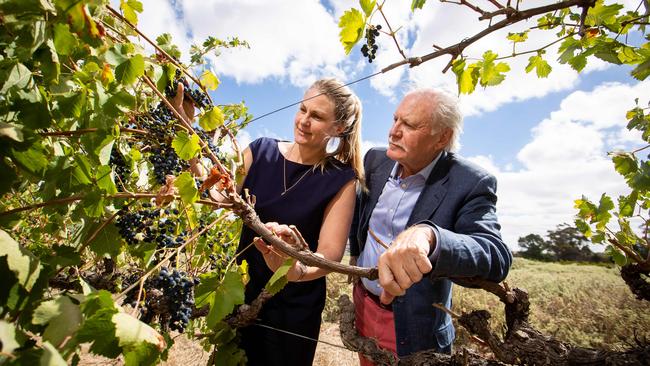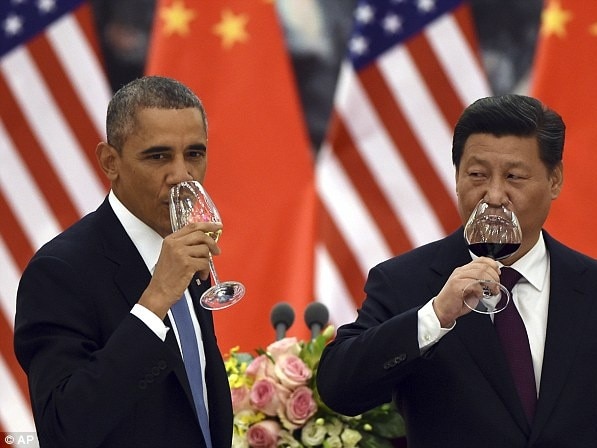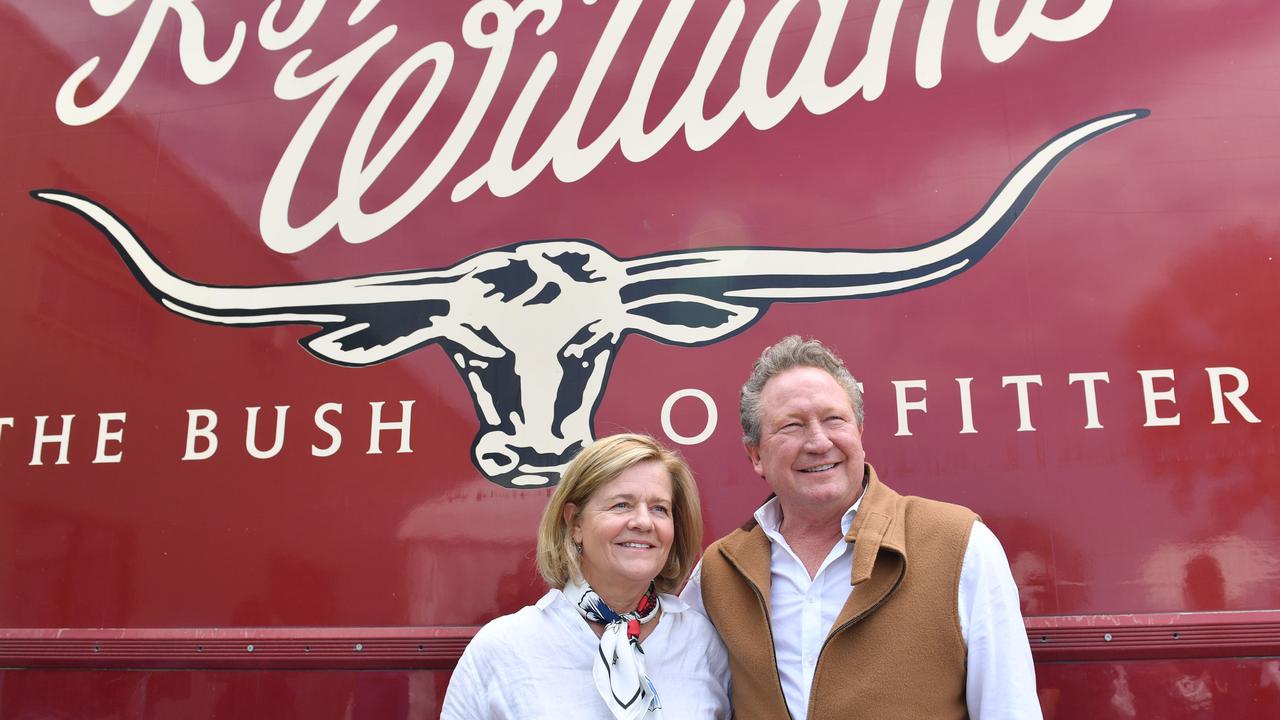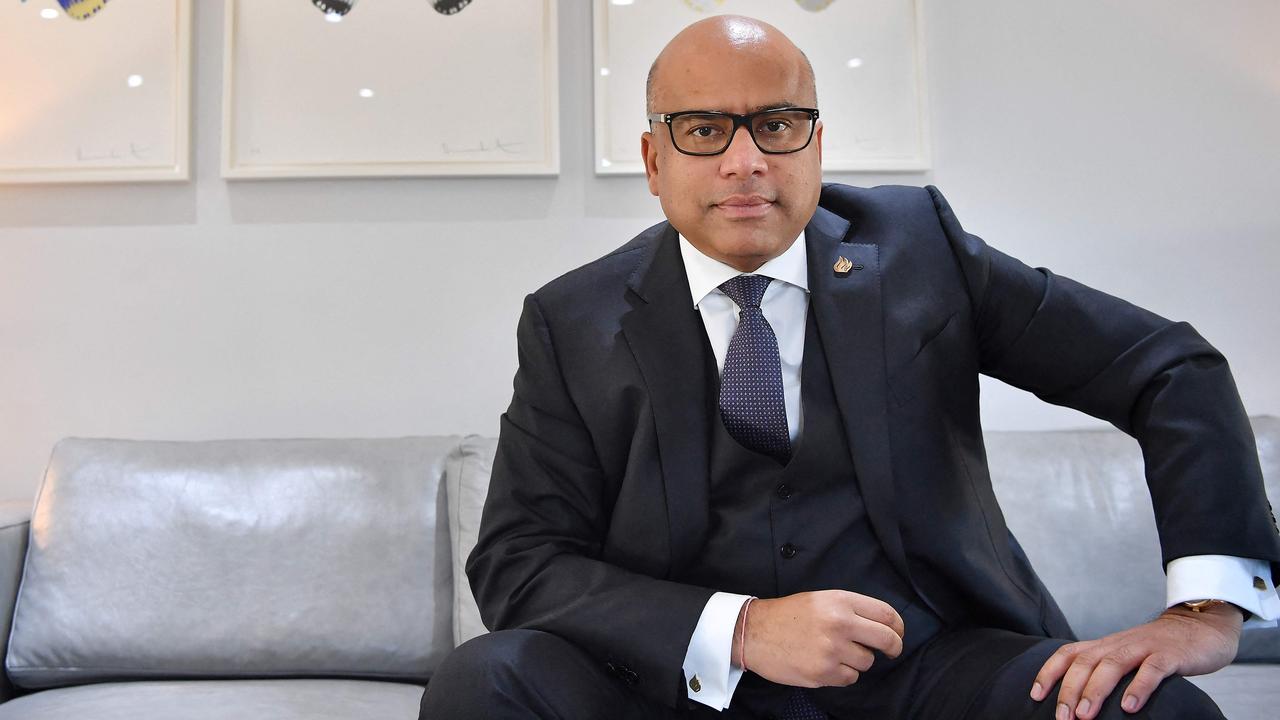Chateau Tanunda builds new markets in face of daunting China tariffs
Stuck at the pointy end of the trade war with China, Chateau Tanunda’s Michelle Geber says a global network is helping the company rebuild.

For Chateau Tanunda chief executive Michelle Geber, the past six months have been about filling the gap from the revenue lost from the China market.
In 2014, Chateau Tanunda scored a coup when Chinese President Xi Jinping and US President Barack Obama were photographed at the G20 meeting in Brisbane drinking a glass of its award-winning wines.
At its peak, the family-owned Barossa Valley wine maker was selling 15 per cent of its production to China, taking out medals in the prestigious China Wine and Spirits Awards for its shiraz, merlot and cabernet shiraz.
“It was going from strength to strength,” says Geber, who will be a speaker at The Australian’s Global Food Forum next Tuesday.
But the China market was stopped dead following the imposition of tariffs by China’s Ministry of Commerce in November — a temporary move that turned permanent this year, despite a detailed submission by the company.
“At the moment we don’t sell anything to China any more,” says a disappointed Geber.
“In the heyday we were doing about 30 per cent of our exports with China.
“But, for the foreseeable future, trade relations are fraught.”
The company had been hoping Beijing would review its stance — which was an option under its approach to anti-dumping procedures — but all hope was dashed when Beijing affirmed that Chateau Tanunda wines would face a crushing 160 per cent tariff for at least five years.
The tariffs have effectively stopped all Australian wine sales to China, once the biggest offshore market for Australian wine in a trade worth more than $1.1bn a year.

Geber says the company has reacted by stepping up its marketing locally and looking for more export markets.
“We are looking to take the wines we were selling to China and build other markets,” she says.
“We are looking to grow in the established markets like the UK, the US and other parts of Europe.
“We are also looking to invest into emerging markets and Asian countries like Singapore and Hong Kong and Japan.”
Geber says Chateau Tanunda has been selling in Europe for 20 years, which has helped with contacts as it sought out new markets.
“While it has been difficult, we have been able to leverage some of the contacts we have with people around the world to help us grow other markets,” Geber says. She says the company has also stepped up its online sales through its wine club in Australia.
Geber has been chief executive for the past five years. Her family had been in the wine business for some time before it bought the 130-year-old Chateau Tanunda buildings in the Barossa in 1998.
The buildings had been abandoned by their previous owner as it had been uneconomical to repair them.
“We have breathed life back into this winemaking story,” she says.
Geber is surprised Australian wine makers have been accused of dumping product in China because they were sending some of their best wines to the country. “Our focus has been on luxury, high-end Australian wines,” she says.
“Our wine is high-quality winemaking by a family business, from grapes from our own vineyard and another 40 growers in the Barossa.”
Representatives from Chateau Tanunda were visiting China four times a year to develop the market before Covid stopped international travel.
Geber says while wine producers have been hit by the China tariffs, the tariffs had also hit Chinese wine buyers, who had been relying on the product from Australia.
“(The closure of the China export market) has affected Australian businesses but it has also had a big effect on the local Chinese businessmen we have been developing relations with for the past seven years,” she says.
“They had been heavily focused on becoming experts in Australian wines. Overnight they needed to change their direction.”
Geber says she is hoping wine makers can keep up their ties with the buyers for whenever the market may reopen.
She warns that the closure of the market will flow through to grape prices.
“Grape prices are already starting to be driven down. We are yet to see the full ramifications of how this will affect prices,” she says.
Geber would love to see more attempts to repair ties between the countries.
“I would like to see the conversation turn around quicker as to how we could re-establish relations with China,” she says.



